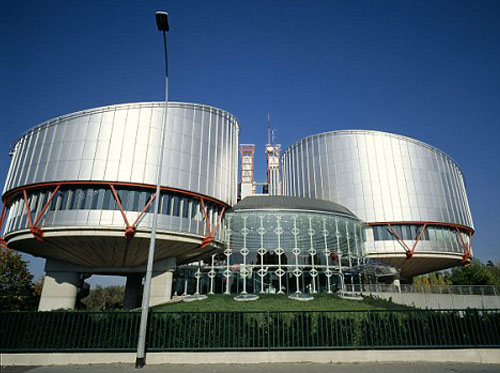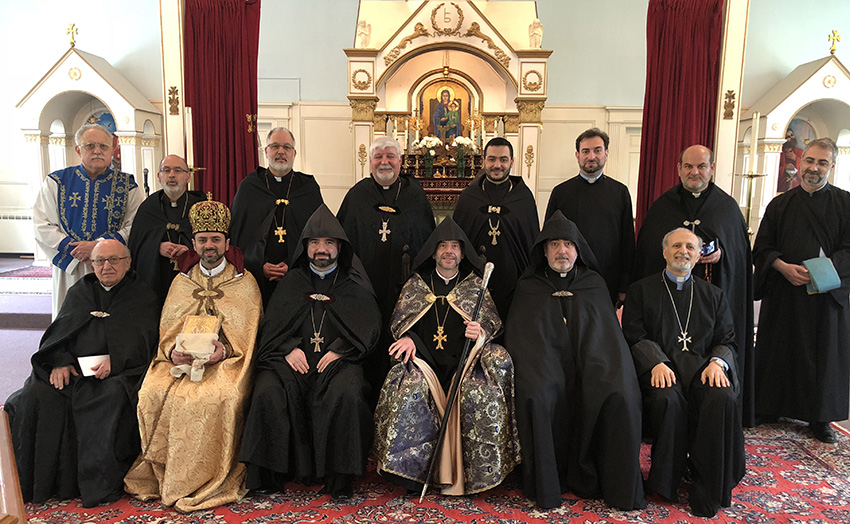By Bulent Kenes
http://www.todayszaman.com/
This is how things work in this country. A thing is done not because it is the correct thing to do or because someone is entitled to it or because it just must be done. Things that may be done or steps that must be taken are done or taken in response to an emerging need or affair. Usually, a thing is done out of a necessity, but not because our principles or attachment to moral or ethical values or our respect or ability to have empathy for others entail it, or because we are true democrats. And more often than not, what needs to be done is done at the eleventh hour. Moreover and worse still, sometimes what needs to be done is not done with sincerity, but with the pretense of sincerity.
This tradition didn’t change regarding the tragic events that occurred during World War I and especially in 1915. Turkey has always sought to save face instead of coming up with a humanitarian approach based on human rights, laws, morality and civility, and with a permanent solution that would satisfy both sides to a reasonable extent. And to save face, we always acted at the eleventh hour. The message of condolences issued by the Prime Minister’s Office of the Turkish Republic on April 23, addressed to the children and grandchildren of the Armenians who lost their lives during the forced relocation and massacre of 1915, falls within this category although it claims that Turkey understands and shares in their sorrows.
Still, we need to acknowledge that this historic statement, issued in nine languages including Turkish and two Armenian dialects and undersigned by Prime Minister Recep Tayyip Erdogan, is a very bold step in the right direction. But this does not save it from being a tactical move in the final analysis.
This is because this message does not aim to solve the problem and ensure a confrontation with the past and bring to daylight the truth, even if we may not like it. Rather, it seeks to temporarily get rid of a big, imminent problem and buy time. The fact that the statement was issued on April 23, i.e., one day before Armenian Genocide Commemoration Day on April 24, lends credence to this thesis.
On April 24, not only US President Barack Obama, but also many presidents, governments and parliaments around the world tend to make statements about the 1915 tragedy. Everyone knows that in their consciences, they are close to seeing this tragedy — which occurred in the context of World War I — as “genocide,” even if they may not officially acknowledge it as “genocide” due to their political, diplomatic or economic interests. Here I must note that those who are close to the “genocide” approach also include the countries, administrations and powers that seek to instrumentalize this sorrow to attain certain pragmatic goals or that seek to settle accounts with Turkey via the great sorrow of Armenians.
Actually, this year’s April 24 is not the worst experience we will have. It is just a small rehearsal for the real test for Turkey in 2015, which will be marked as the “Centennial of the Armenian Genocide,” which Turkey cannot escape or ignore. The prime minister’s statement may help to alleviate the preliminary shockwaves of this impending event, but it can hardly be a complete solution to this indispensable event, which will be here in 365 days.
From another perspective, the statement of condolences, undersigned by Prime Minister Erdogan, is a carefully prepared text. It is such that we would never expect Erdogan to issue such a statement. Indeed, he is so indifferent to the pain he causes or is responsible for, and he has recently been so busy sowing the seeds of hatred among diverse segments of society that we would never believe that he nurtured any empathy for those who were jeopardized in a tragedy that occurred 99 years ago. As a matter of fact, it is really hard to bring ourselves to believe that the person who was totally indifferent and insensitive to the Uludere tragedy — in which 34 civilians were mistaken for terrorists and killed in military airstrikes in Sirnak’s Uludere district due to false intelligence — or to the protesters who died during the Gezi Park protests is the same person who undersigned this statement.
However, it is quite natural for us to expect a prime minister to develop long-standing strategies based on certain moral values and principles, be it in the name of the national interest or personal political plans. But this does not apply to our case. Rather, Erdogan gives the impression of being a man of short-sighted tactical moves geared toward saving face. Therefore, we need to analyze in depth Erdogan’s real intentions with this statement. It should be noted that this message seeks to restore Turkey’s deteriorating image in the international arena rather than to share in the sorrows of Armenians. With this move, which can be described as a PR effort, we can say that Erdogan has launched a charm offensive a la Turca.
Even if it is intended as a charm offensive, this historic move is not stripped of its conjunctural and contextual spiritual value. But at the same time, it brings the lack of sincerity into broad daylight. Of course we need to question the sincerity and intentions behind an isolated positive move by one with a despotic mentality, who pays no regard to the rights and freedoms of diverse social groups in the country and is in an effort to establish an arbitrary rule with total control over democratic institutions and is ready to crush any dissident or opposing group.
Actually, it is a grave act of naiveté to assume that a repressive leader — who use all his power to push aside fundamental rights and freedoms, democracy and rule of law and turn them into a tool of oppression, thereby creating a deep-rooted sociopolitical problem with effects that will last for decades to come — will take well-meaning steps to solve a problem stemming from a tragedy that occurred 100 years ago.
Having emerged as a political figure who is no longer expected to pay respect to rights and freedoms and who will never act as a true democrat, Erdogan has made anti-democratic attitudes part of his nature and this has the potential to make his statement regarding Armenian sorrows meaningless. Given all the tests of sincerity Erdogan has failed so far, it is hard to say whether he is being sincere with this move.
If we are to expect any sincerity from Erdogan, his level of sincerity now could be equal to, not more than, the sincerity he shows with regard to the Kurdish issue, in which he takes steps only to the extent that they are beneficial to his political career. Alternatively, we can look at how he promised to draft a new, civilian constitution ahead of the general elections, but he did everything to build himself a strict and lawless rule after the elections. Perhaps we should expect this latest move to end like the so-called Alevi initiative, for which numerous workshops were held but which was eventually abandoned after he realized that it would not be politically beneficial to his party. Or we can expect the same sincerity as that of his move to make the reopening of the Halki Seminary on the island of Heybeliada near Istanbul a matter of bargaining with Greece, although he had promised many times to open it.
What I am trying to get at is that our expectations for a leader who has developed a lawless, anti-democratic personality, who seeks to socio-culturally and economically lynch certain social groups that are selectively antagonized and who causes great social problems by spouting ever more hatred should be kept at a low level. Indeed, any disillusion from expecting a person who is the source of great tragedies today to solve a historical tragedy will only lead to grave disappointment.










